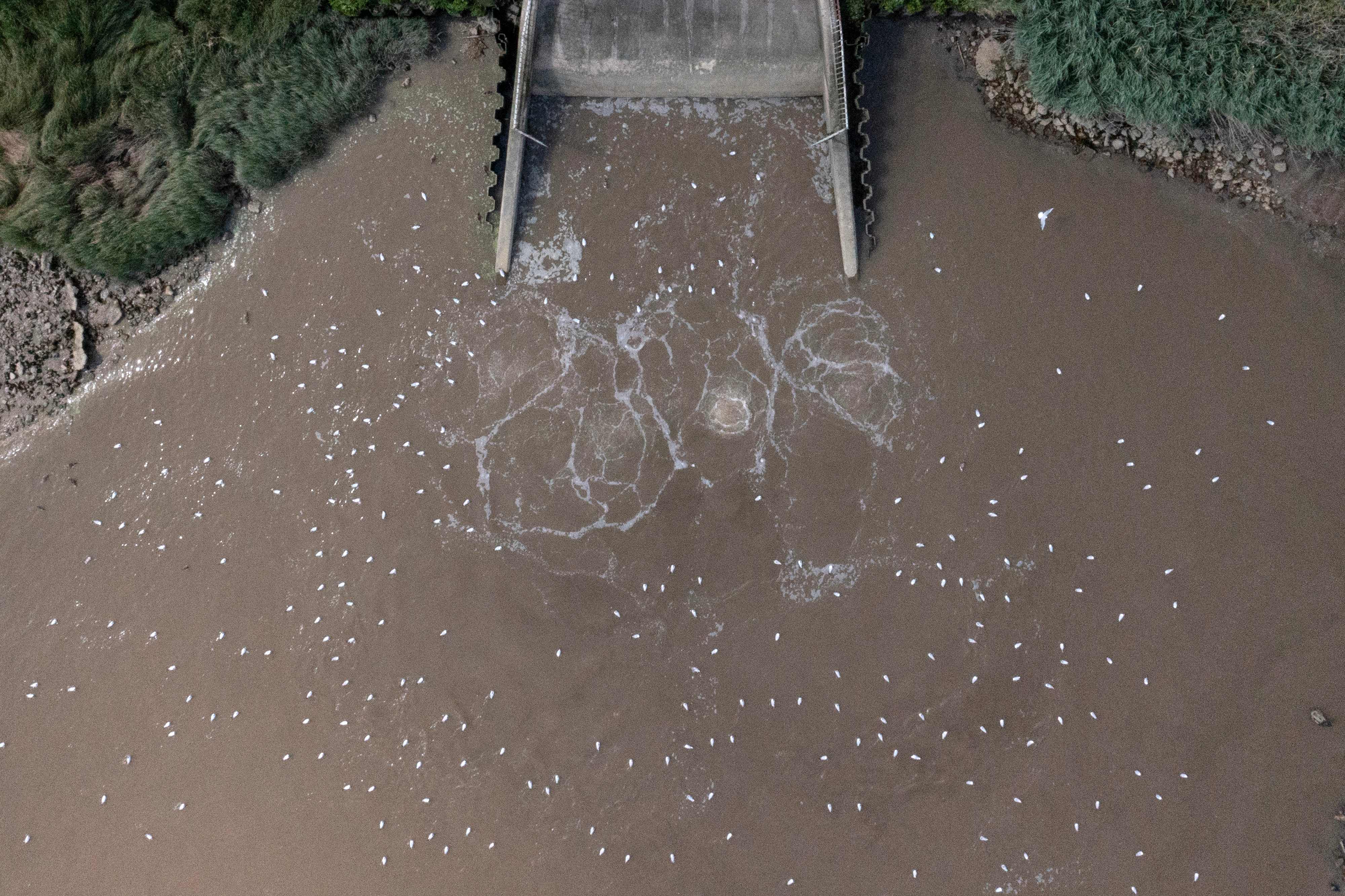Is the government breaking its own law on sewage in rivers and seas?
‘There are no quick fixes’ to the discharge scandal, according to the new watchdog – but public patience is running out, says John Rentoul


Ministers and regulators may have broken the law by allowing water companies to dump sewage into rivers and seas, according the Office for Environmental Protection (OEP), a new statutory watchdog.
It found the Department for Environment, Food and Rural Affairs (Defra), the Environment Agency (EA) and Ofwat may have misinterpreted the law and allowed water companies to pollute waterways when they shouldn’t.
Combined sewer overflows are only meant to be used in exceptional circumstances, such as after unusually heavy rain to prevent sewers backing up and flooding homes and businesses.
Liberal Democrat leader Ed Davey described the OEP’s findings as “environmental vandalism on an industrial scale” while “ministers and regulators are sitting on their hands”.
Therese Coffey, the environment, food and rural affairs secretary, has two months to respond to the findings and to set out what she intends to do about them. Her department’s initial reaction has been to concede that the volume of sewage discharged is “completely unacceptable” but to insist it has not broken the law. It argues that the OEP has got the law wrong. The OEP, meanwhile, says it has “reasonable grounds for suspecting” that the government has misinterpreted the legislation.
What is the Office for Environmental Protection?
The OEP is a kind of super-regulator, set up by the Environment Act two years ago, to supervise various public bodies responsible for protecting the environment. These include not just Defra but industry regulator Ofwat and the public body charged with regulating land and water pollution, the Environment Agency.
Helen Venn, its chief regulatory officer, said: “As a result of our investigations so far, we think there may have been misinterpretations of some key points of law. The core of the issue is that where we interpret the law to mean that untreated sewage discharges should generally be allowed only in exceptional circumstances, such as during unusually heavy rainfall, it appears that the public authorities may have interpreted the law differently, permitting such discharges to occur more often.”
Who might have broken the law?
The OEP has in effect put all three organisations in the dock, saying that they have all failed to force the water companies to prevent sewage discharges, which they are required to do by law.
So what will happen next?
The net effect of all this legal and regulatory action is hard to discern. All the organisations concerned strenuously declare that the failure of the water companies to reduce sewage discharges is unacceptable, and they all admit that it is difficult and expensive to do anything about it.
Ms Venn of the OEP says: “Improving the quality of water in our rivers and seas is a complex challenge. There are no quick fixes.”
Indeed, she goes further: “We recognise that a great deal is already being done to tackle the issue of untreated sewage discharges, and we welcome the intent of government measures such as the Plan for Water and storm overflow targets, as well as commitments to increase investment.”
In other words, all the regulators and the water companies are trying to sound as if they are doing everything they can to tackle the problem, but they know that they are lagging well behind public opinion.





Join our commenting forum
Join thought-provoking conversations, follow other Independent readers and see their replies
Comments